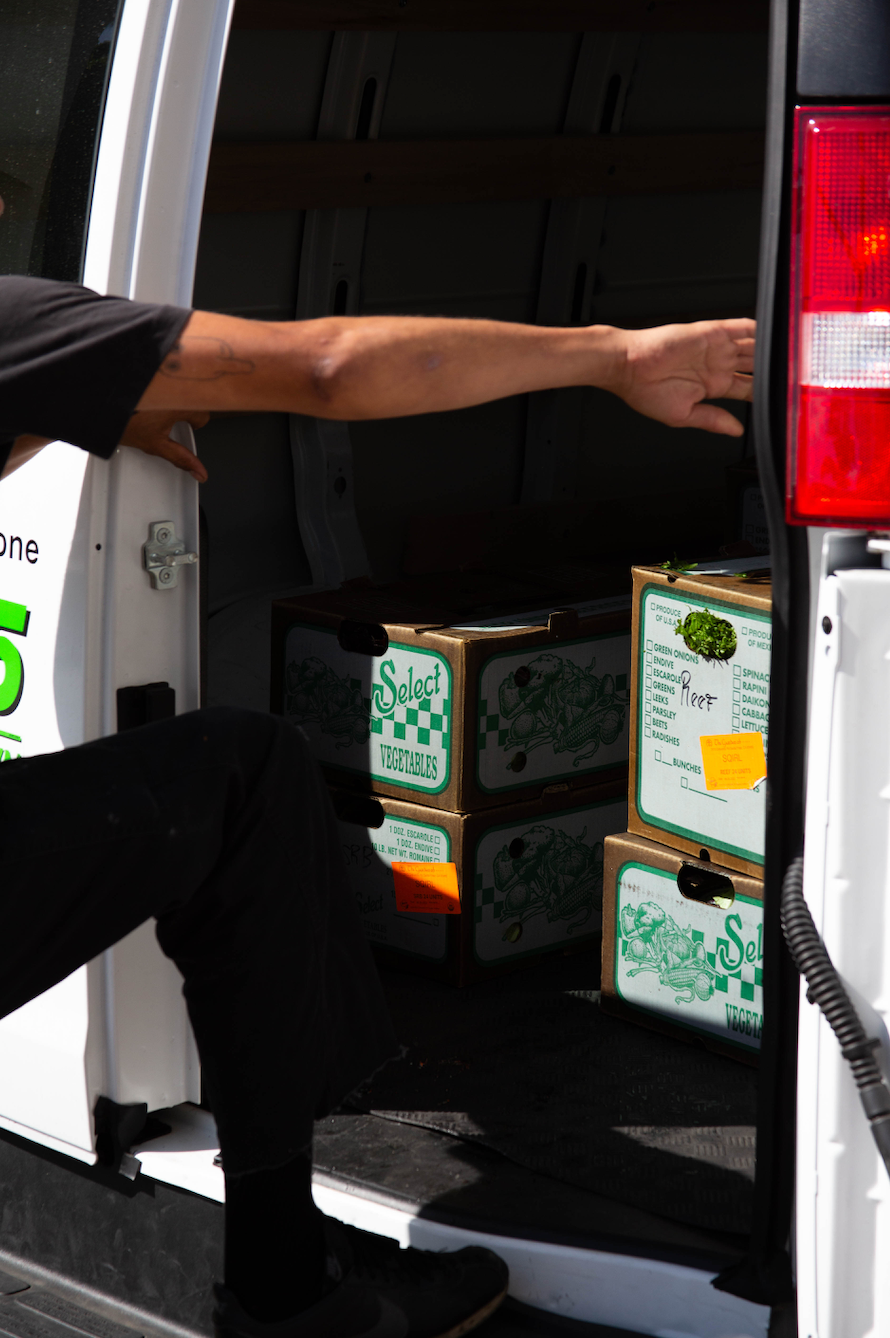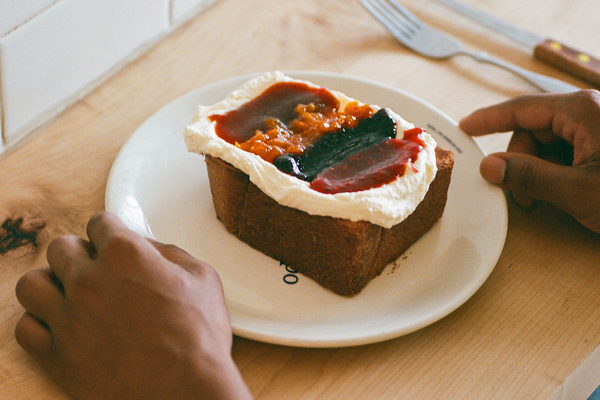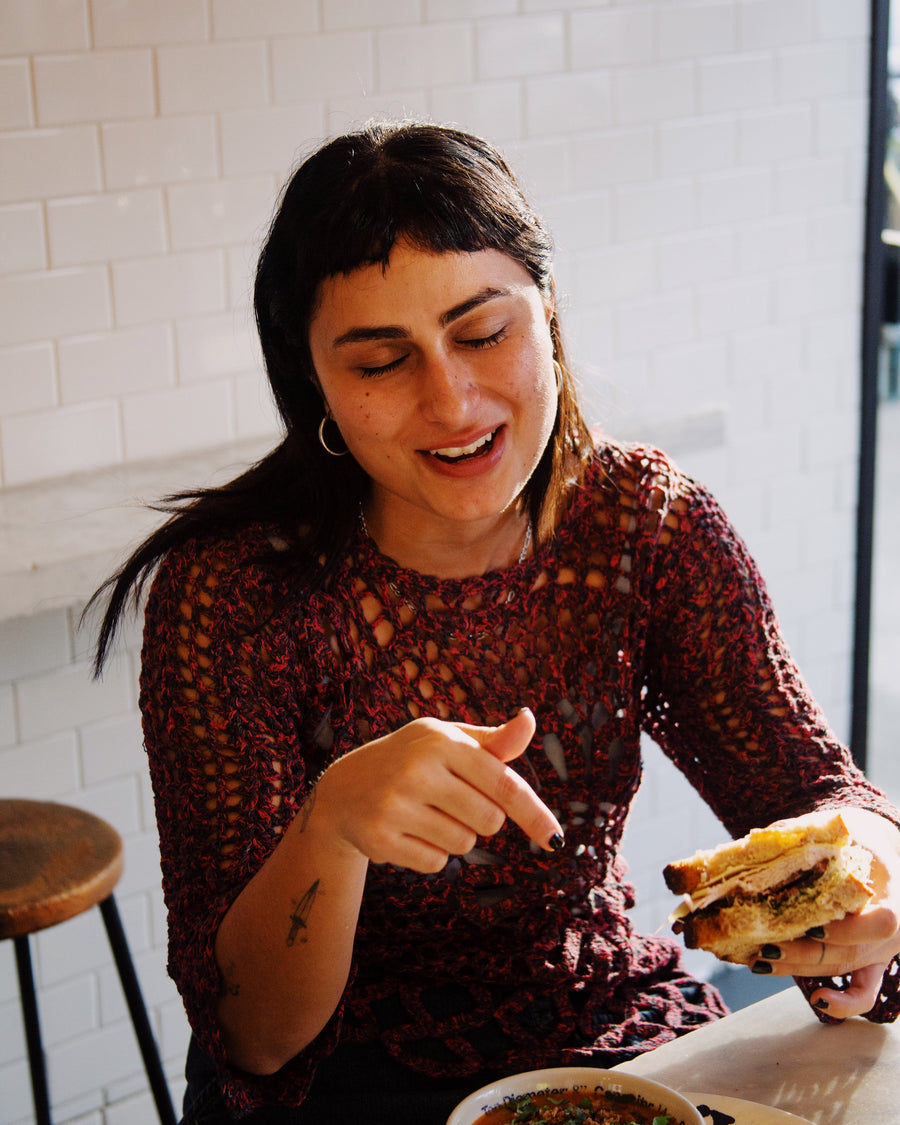A Chat with Sam Wasserman about CA Olive Oil
February 20, 2024
- Farm Visits,
- Interviews,
- News
When we met Sam Wasserman of SLW Farms, and tasted his olive oil it was a no brainer. We started the conversation immediately that would ultimately lead to Sqirl's first in-house olive oil, grown at SLW. After chatting about his farm, methods, and the CA olive oil community, we've learned even more about an oil we love and the process that makes it.



Sqirl: The first time I had encountered the term dry farmed was when we started working with Mike Cirone and his blenheim apricots at See Canyon. Can you explain what dry farming means for the olive oil and its flavor?
Sam: The most common place you'll hear about dry farming is at California farmer's markets. If you look you'll see dry farmed tomatoes and dry farmed watermelons. Basically you can do it with anything that you can get to establish roots that go deep enough that the plant doesn't need constant watering. But what a dry farmed product usually means, in terms of flavor, is that you're getting more of what makes that product what it is. It strengthens the natural flavors of the plant. So when you get that little early girl dry farmed tomato at the farmer's market, and you make a sauce out of that, you're going to get more tomato flavor than if you get a huge heirloom tomato that's been watered constantly.
Sqirl: Are there any other unique processes you guys have on the farm?
Sam: After we press our oil, we go back to the press and pick up bins that are now full of the pumice or the leftover plant matter from the press. We load that back up, take that out to the orchard, and then we take our tractor and we dump that as fertilizer. Rain will spread it around, and feed it back to our trees. So really at the end of the day, all we really want to be taking out of our system is the oil in the fruit. We want to put back all the leftover fruit, all the pit, all the skin, all that.

Sqirl: You guys are relatively new to olive farming and farming in general, how did you find yourself here?
Sam: So I studied Rangeland Ecology in college. Rangelands are, and this is a bit reductive, anything that's gone from being a woodland to a grassland and is now grazed on by livestock. In California specifically, a lot of that is covered in grass, say you're driving up the 5 or the 101, that grass land was at one point, oak woodland. You can see it as you drive through Paso Robles, where our farm is located. There's still remnants of that mix of oak woodland and grassland. My research with rangelands kind of led me to better understand CA agricultural systems. Then during the pandemic I fell in love with gardening at my home in LA. At the same time my parents were retiring, who had always wanted to purchase some sort of farm property. We were lucky enough to purchase our land in Paso as a family and we inherited some 300 olive trees. We relied and still rely very heavily on olive farmers in the area that have come by and helped us out with pruning, fertilizing, even just letting us know what we have. We're very fresh to farming, and we're super thankful for all the local knowledge we've received. I've been able to combine that with my knowledge I've gained through my education and move forward with a dynamic approach to olive farming.













